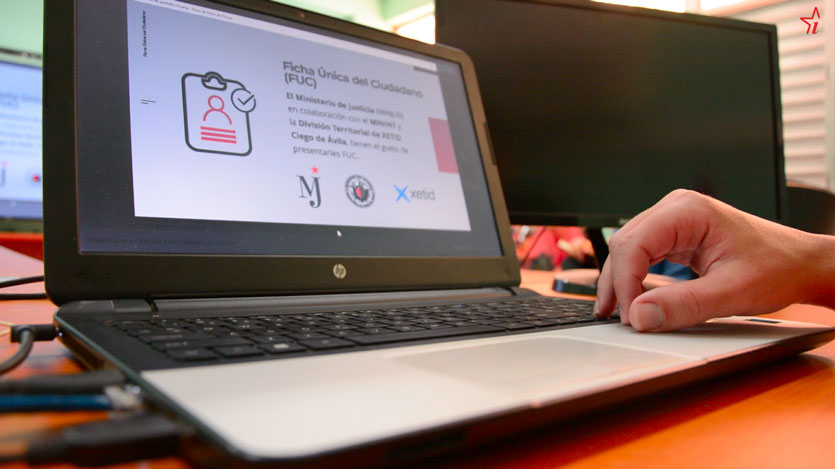
Several press media have made reference to the launch of the Single Citizen's Record Card (FUC by its Spanish initials) in Cuba, but little has been said about its implementation at the national level, process that takes place at the University Máximo Gómez Báez in Ciego de Ávila, where the Territorial Division of the Defense Information Technology Company (XETID by its Spanish initials) is based.
It is "a digital platform that allows interoperability between public records and institutions, agencies and entities that provide services and procedures to natural and legal people", as established by Resolution 484/20, issued by the Minister of Justice, Oscar Silvera Martínez, and put into effect on December 10.
The FUC specifically houses the data collected in the ID and the Civil Status Registry, including the permanent identity number, name and surname of the person and parents, volume, sheet, birth registration, legal address, facial photography, signature, sex, skin and eye color, weight and height, among others.
"From there, it is updated with each of the procedures that you go through in life, such as change your name, address, among others," Noel Alvarado Cepero, director of the XETID in Ciego de Ávila, explained.
Its access, specified in the regulation, is made with the legal guarantees, integrity and protection of the information that are essential to preserve the personal record cards collected in this computer software.
Another feature of this legal record card is its integration with electronic commerce. "It gives the possibility, for example, to verify your information when registering in EnZona, therefore you should not put your name or other information, just by entering the identity card number, volume and sheet, automatically the system load the data that is registered,” Haydeé Tamayo Ramos, specialist in electronic commerce at the XETID headquarters in Ciego de Ávila, added.
"The platform can be integrated into any computer system that uses citizens' personal information, and thereby it is avoided errors in many procedures, such as the lack of a pronunciation mark, the change of a letter, among others," Alvarado Cepero clarified.
The software that supports the FUC was developed in approximately six months and then went through a certification process with the Ministry of the Interior to perform all the required security, implementation and operation tests, a way to guarantee the non-violation of the private data of people against possible cyber attacks.
It arises from the need for the country to computerize all the legal procedures carried out by the population and, with it, to have a digital identity that accredits citizens before different operations.
At the moment, more than 30 applications are processed for access to the FUC, the Computer and Electronics Youth Club and the Ministry of Social Security, entities that are also contextualized with the country's impulse in search of greater computerization of Cuban society are among them.




